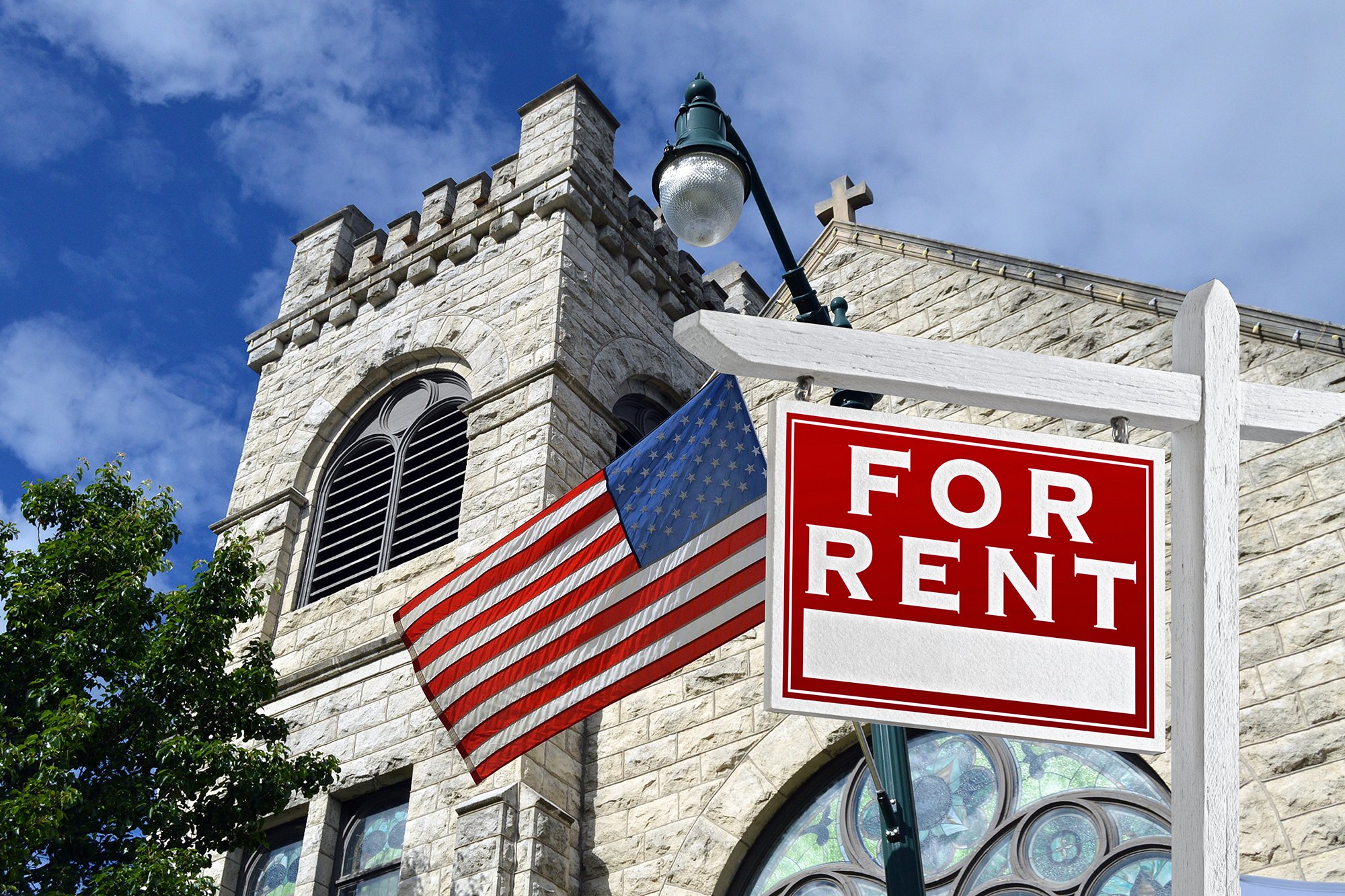Should churches and nonprofits rent or share their facilities?
What are the pros and cons of opening your building to outside groups?
Watch the video interview with Max Herr on renting and sharing your facility.
Article: What should facility use and lease agreements cover?
Churches and nonprofit organizations have a reputation for generosity toward their communities. This has often included opening their facilities to outside entities such as youth organizations, clubs and faith-based groups. In addition, churches and nonprofits may lease some, or all, of their property to schools, day cares and for other nonprofit or for-profit uses. While sharing your facility can be a positive experience, there are risks every organization should be informed about:
Churches that are financing debt (mortgages) may have to pay federal income tax (known as Unrelated Business Income Tax) on rental income, depending on how much is earned.
Local property tax exemptions can be revoked or reduced if churches lease their building or property (even part of it) to outside entities. This includes uses as minor as food trucks paying churches to rent space in parking lots.
Apart from renting, there are other challenges. Churches can be vulnerable to accusations of discrimination if they open their facilities to some, but not all, outside groups. This risk can be reduced by creating facility-use policies, bylaws and clear doctrinal statements.
Ministry Pacific does not oppose churches and nonprofit organizations opening their facilities to outside groups. We advise, however, that property owners are fully informed of the potential tax and liability issues related to non-church use of their facilities. Churches and nonprofits should require facility-use agreements to be signed and adhered to by outside users. We encourage our clients to set up a free consultation with us to make sure their property and liability policies are adequate to support leasing and sharing agreements.
OUR EXPERT
Max Herr is president of Church & Ministry Compliance Consulting. He has more than 25 years of experience in insurance, financial services, compliance and governance, including more than 10 years as a church treasurer. Max also served as a church compliance specialist for the California Southern Baptist Convention for six years.
INTERVIEW: SHOULD CHURCHES AND NONPROFITS OPEN THEIR FACILITIES TO OUTSIDE GROUPS?
Quick guide to topics discussed and the time segment where they appear
KEY POINTS ABOUT CHURCHES LEASING THEIR FACILITIES
Tax Exemption Status Renting facilities does NOT automatically cause a church to lose its 501(c)(3) non-profit status.
Debt Financing Matters Rental income becomes taxable only if the church property is debt-financed, with income over $1,000 potentially subject to corporate tax rates.
Property Tax Exemption Churches can lose partial or full property tax exemptions based on how they allow their facilities to be used.
Facility Use Policy Critical to have a well-defined, written policy that protects the church's doctrinal positions and prevents becoming a "place of public accommodation."
Rental Considerations Different rules apply for non-profit vs. for-profit organizations using church facilities.
Risk Management Consistent application of facility use policies and careful documentation are essential to protect the church.
Documentation Churches should maintain clear records, have legal counsel review agreements, and understand local tax regulations.
Selective Usage Churches can restrict facility use based on consistent, documented doctrinal principles.
Expert Consultation Recommended to consult specialists like Max Herr when navigating complex facility usage scenarios.
Legal Protection Bylaws, facility use policies, and clear doctrinal statements help churches maintain their rights and protect their properties.
DETAILED TIME-STAMPED OVERVIEW OF “SHOULD CHURCHES AND NONPROFITS OPEN THEIR FACILITIES TO OUTSIDE GROUPS?”
Numbers represent time segments in the video. Forward to the time stamp to view snippets of content.
Introductions
1:25 Can outside groups who use your building harm your organization’s reputation?
3:00 Liability issues and the importance of facility-use agreements.
3:40 Can renting your facility result in the loss of federal tax exempt status?
4:20 Can a church lease result in churches paying federal income taxes?
6:10 Can churches lose all or part of their local property tax exemptions if they lease their building to outside groups?
9:45 What is a welfare exemption and how does it related to churches that lease their property to outside entities?
11:15 Can churches lease space to telecommunications companies for cell towers?
12:00 Does it matter if a church leases its space to a nonprofit daycare vs. a for-profit day care?
13:10 Property taxes usually have no statute of limitations, therefore if a church has been operating outside of compliance, it could owe several years’ worth of property taxes.
14:00 What kind of documentation does a nonprofit organization need to provide to a church to demonstrate its tax-exempt status?
14:30 Can organizations that lease church property make donations in-lieu of a lease payment?
16:15 Can a church charge food trucks rent in order to allow them to use the church parking lot?
17:47 About Max Herr and Church and Ministry Compliance Consulting
18:30 Churches, weddings and facility use
20:35 What is a “place of public accommodation” and can it create a conflict with religious expression?
26:13 Can churches consistently but selectively open their facilities to some – but not all – outside groups without being unlawfully discriminatory?
27:40 The importance of church facility agreements, doctrinal statements and bylaws when sharing or leasing your facility.
34:00 Q&A about churches and nonprofits leasing and sharing facilities.

